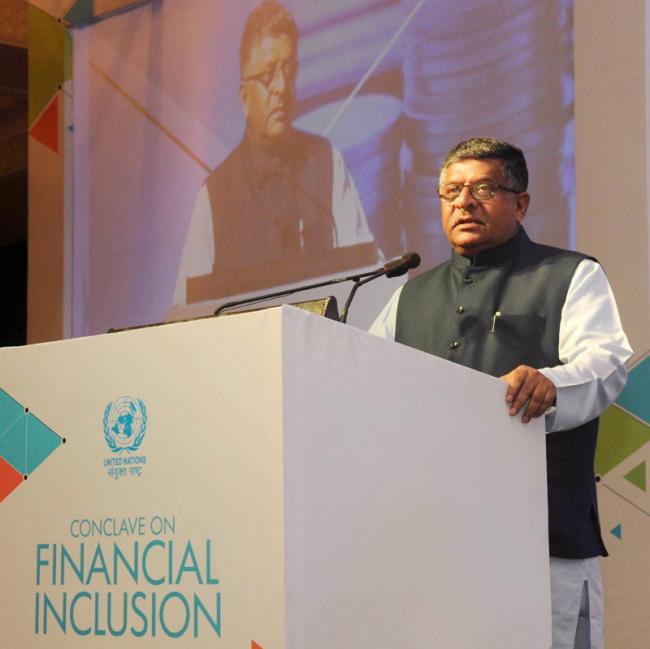
Social media will not be allowed to abuse election process: Prasad
New Delhi, Aug 26 (IBNS): Union Minister Ravi Shankar Prasad on Sunday said social media platforms will never be allowed to abuse India's election process.
He said India will take all required steps to deter and punish those who seek to vitiate this process.
Minister Prasad stressed that India had taken a serious note of reported misuse of social media platform data.
"Such platforms will never be allowed to abuse our election process for extraneous means," he added.
He said that the purity of the democratic process should never be compromised and that India will take all required steps to deter and punish those who seek to vitiate this process.
At the G20 Digital Economy Ministerial Meeting in Salta, in the north-west of Argentina, G20 ministers and senior officials issued a declaration that reflects the G20’s commitment towards promoting “policies and actions that catalyze digital transformations.
The Digital Economy Ministerial Meeting, held on 23-24 August, was attended by 33 heads of delegation- Ministers, senior officials and representatives from invited countries and international organizations, like EU, UNCTAD, ITU etc.
Prasad represented India in the event.
Addressing the Plenary of the G-20 Digital Economy Ministerial meeting, Prasad said that India’s digital story is a story of hope and growth; of opportunities and profits.
But above all it is a story of digital inclusion and empowerment. Digital India is a mass movement today touching the lives of a billion people.
Minister Prasad said that he was very assured to note that an important theme of the meeting was bridging the gender divide adding that gender empowerment was an important focus for his government.
Highlighting the enormous scale of India’s digital infrastructure that included 1.21 billion mobile phones, of which 450 million are smartphones, nearly 500 million internet subscriber and an ever increasing broadband availability being supported by optical fibre connectivity in 250,000 village clusters, Minister Prasad said that the success of Digital India programme lay in the conscious efforts to bridge the digital divide and promote digital inclusion, based upon technology which is low cost, affordable, developmental and which fosters empowerment and inclusion.
The Minister, in particular, highlighted the important role played by India’s home grown technologies for promoting digital payment, including importance on interoperable open-source technologies so that these platforms can be used by others to develop more innovative structures as well as leading to new norms of digital identity based authentication which are a generation ahead.
"All this is in addition to the stellar role played by India’s IT companies, which have left their mark in 200 cities of 80 countries, enabling India to emerge as a profound digital power, with India’s digital economy likely to become 1 trillion $ economy in the next 3-5 years, " he added.
Minister Prasad said that India believed in internet access for all, adding that the Internet is one of the finest creations of the human mind, but it cannot be the monopoly of a few.
He also stated that while Cyber-space is truly global, it must be linked with local ideas, local culture and local views.
He said that the largest and most dynamic markets for digital services are in Asia, Latin America and Africa with India having one of the largest foot-print of several popular social media and other digital platforms.
"It is only fair and just that the revenue and profit generated from these platforms be equitably reinvested in the largest markets to create more infrastructures and generate more job opportunities for the people there, he added.
Minister Prasad articulated India’s concerns about data protection and individual privacy and informed the meeting that India had already put in place stringent measures backed by laws passed by the parliament.
He said that privacy cannot prohibit innovation nor can privacy become the shield for the corrupt or terrorists.
"We need data to improve business but the data must be anonymous, objective, and taken with consent," he added.
Support Our Journalism
We cannot do without you.. your contribution supports unbiased journalism
IBNS is not driven by any ism- not wokeism, not racism, not skewed secularism, not hyper right-wing or left liberal ideals, nor by any hardline religious beliefs or hyper nationalism. We want to serve you good old objective news, as they are. We do not judge or preach. We let people decide for themselves. We only try to present factual and well-sourced news.







